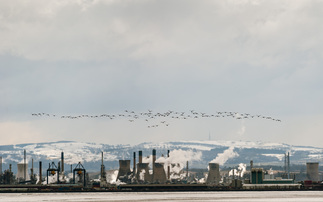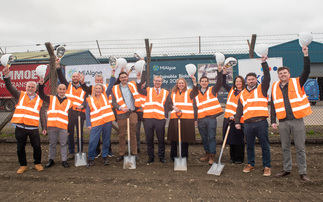Top figures from the leading banking group - formerly RBS - join BusinessGreen deputy editor Michael Holder to discuss NatWest's ambition to become a 'climate positive' bank by 2025
Major changes have been underway at NatWest in 2020. At the start of the year parent company the Royal Bank of Scotland (RBS) announced a rebrand to bring the entire banking group under its NatWest brand umbrella, at the same time as unveilng a suite of industry-leading climate goals.
Firstly, the bank has set its sights on becoming 'climate positive' across its own operations by 2025, and to "at least" halve the climate impacts of its financial activities by 2030. In order to get there NatWest - which aims to become net zero in its own operations this year - has said it will stop all lending and underwriting for oil and gas firms unless they produce credible Paris Agreement-aligned plans by the end of 2021, and to phase out all coal investments entirely within the next decade. On top of these targets, the bank has said it will funnel an additional £20bn funding and financing into the green economy, in areas such as renewables, green buildings, the circular economy and sustainabel transport between now and 2022.
To discuss the firm's ambitious targets, the growing divestment movement, what being a climate positive bank means in practice, NatWest's chief commercial officer for commercial banking, Solange Chamberlain, and Simon Watson, managing director for retail banking at RBS, both joined BusinessGreen deputy editor Michael Holder for a chat ahead of the world's first Net Zero Festival, for which NatWest is a partner.










